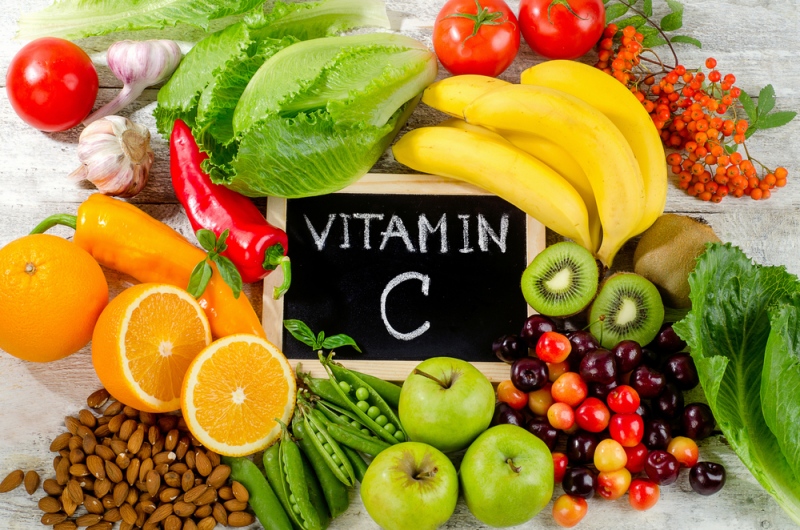Winter’s arrival might bring to mind holiday celebrations and memories of sledding or making snowmen, but this season isn’t all fun and games. Unfortunately, the chillier months are known (and feared) for widespread illnesses such as the flu, respiratory infections, and the common cold. If you’re going to get sick, it’s probably going to be during this time of year. After all, the average adult comes down with two to four colds per year — usually between the months of September and May — and with all the time we spend indoors, it’s no wonder that bacteria and viruses run rampant.
No one wants to deal with the body aches, coughing, sneezing, headaches, fevers, or sore throats that accompany these illnesses. The physical symptoms are bad enough, especially given the fact that the common cold can last between seven and 10 days (or longer, if your immune system is suppressed). But you’ll probably have to miss work, school, and social activities to give yourself time to recover and to keep from infecting anyone else. In 2017, 58 percent of people ages 18 to 30 used up to five sick days. While this demographic is likely one of the healthiest overall, that’s still too many absences for some folks to deal with. And considering that the 2018 flu season lost employers an estimated $9.4 billion in productivity, it’s important for adults to take charge of their health and promote overall wellness both at home and at work.
So what can you do? Aside from getting your immunizations, fitting in regular exercise, and getting plenty of rest, you may want to give some thought to the vitamins and nutrients you work into your regimen. Maintaining a healthy diet can certainly work wonders, but many people would benefit from an extra boost to their immunity. Here are three supplements that can actually help you stave off sickness this winter.
Vitamin C
Vitamin C (also known as L-ascorbic acid) is probably the most well-known of all the lettered vitamins. It’s renowned for its immune system support. It’s also considered to be an essential dietary component because our bodies don’t naturally produce or store it. We tend to get our vitamin C from what we eat and drink, and, fortunately, there are many nutritious and delicious foods that are rich in vitamin C. Citrus fruits and juices, bell peppers, strawberries, kale, spinach, broccoli, tomatoes, kiwi, cantaloupe, Brussels sprouts, cauliflower, and even potatoes are all excellent options. However, cooking these ingredients can reduce the amount of vitamin C they contain.
Vitamin C dietary supplements are an efficient way to ensure you receive your daily recommendations. Smokers (and those exposed to cigarette smoke) have been found to experience decreased vitamin C levels, as are those with limited accessibility to a variety of nutrient-rich produce. While studies pertaining to the effectiveness of vitamin C intake at the onset of a cold have proven inconclusive, the US Department of Health and Human Services’ National Institutes of Health maintains that vitamin C supplements have the potential to shorten the duration of the common cold because of the antihistamine effects these supplements provide. What’s more, increased vitamin C intake can improve the health of those exposed to very cold environments, those who partake in more extreme exercise routines, and elderly individuals.
Zinc
This essential mineral is a mainstay in many lozenges and over-the-counter cold remedies. It’s also known to play a role in immune function and is actually what helps us maintain a proper sense of taste and smell. And like vitamin C, it’s a dietary component that our bodies do not naturally store. You can find zinc in foods like seafood, pork, beef, chicken, beans, yogurt, legumes, cheese, milk, nuts, and peas.
But if you’re vegan or have nut allergies, your zinc intake may be lacking. The same can be said for older adults, as one analysis found that anywhere from 35 to 45 percent of people over age 60 displayed zinc intakes below the estimated average daily requirement. Dietary supplement manufacturers may provide several different forms of zinc in tablet form.
Researchers have hypothesized that zinc may be able to reduce the severity and duration of cold symptoms because of its ability to suppress inflammation and to prevent virus binding and replication in the respiratory mucus membrane. Although clinical trials have produced some conflicting results, most experts agree that zinc can be largely beneficial in specific circumstances.
Echinacea
Echinacea is also known as the purple coneflower (yes, the supplements are derived from a pretty plant) and is native to North America. This ingredient has been used as traditional medicine by Native American communities and is now used to make teas, juices, extracts, capsules, and other preparations.
Although it’s thought to have antiviral and antimicrobial properties, the research pertaining to echinacea is rather mixed. Studies do suggest, however, that echinacea intake can reduce the effects of stress and thereby support greater immune system activity in the long term. Some people swear by its abilities to shorten the length of a cold, though the evidence does not yet support that claim entirely. However, researchers do admit that taking echinacea when you’re well may reduce your chances of getting sick by supporting your immunity.
While the research might not always provide definitive answers, these three supplements are popular among consumers for good reason. Taking them makes us feel healthier and encourages us to make consistently healthy choices that can help us to stay well all winter long.
















